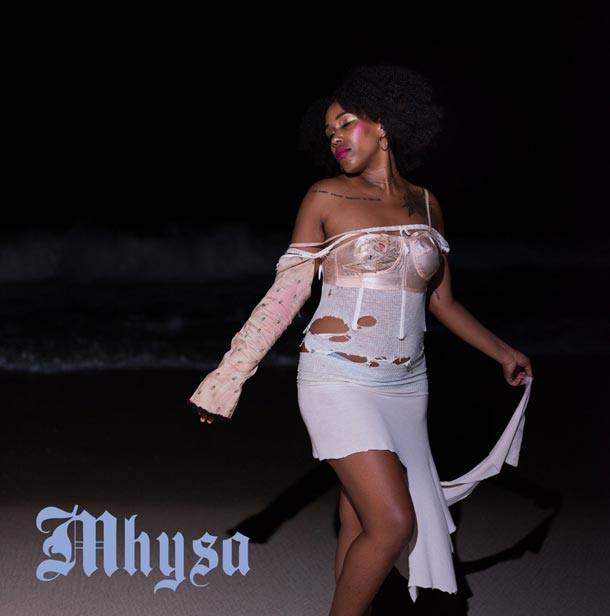MHYSA, Nevaeh

E. Jane è un’artista multidisciplinare di base a New York che incentra i propri lavori sui concetti di queerness e blackness: all’interno del suo percorso artistico si sovrappongono diverse identità, fra cui quella di MHYSA, “an underground popstar for the cyber resistance”.
La discrasia fra il termine popstar e l’aggettivo underground prende forma nel suo modo di fare musica, una sorta di R&B scarnificato all’osso, puntellato da sequenze di batteria, in cui MHYSA non si esime dal dare sfogo alle sue indubbie, talora eccessivamente esibite, capacità vocali. Nelle 18 tracce di Nevaeh, fuori per Hyperdub, si cerca di rimodellare l’immaginario femminile pervenendo a un’ammaliante e volitiva morbidezza che si incunea su un substrato musicale privo di orpelli: accanto ad alcuni interludi, poco più che miniature per voce e rumori, ci sono composizioni originali improntate a forme impalpabili di seduzione (“Ropeburn”, “Bbygurl”) e riletture: quella di un classico della cultura afroamericana come “When The Saints Go Marching In”(!) e quella del featuring di Lauryn Hill in un pezzo di Nas del 1996.
È pop? È underground? In tempi di effetto coda lunga, quando anche piccolissime produzioni riescono, sgomitando, a farsi largo, valgono ancora tali distinzioni? A voi la decisione…
